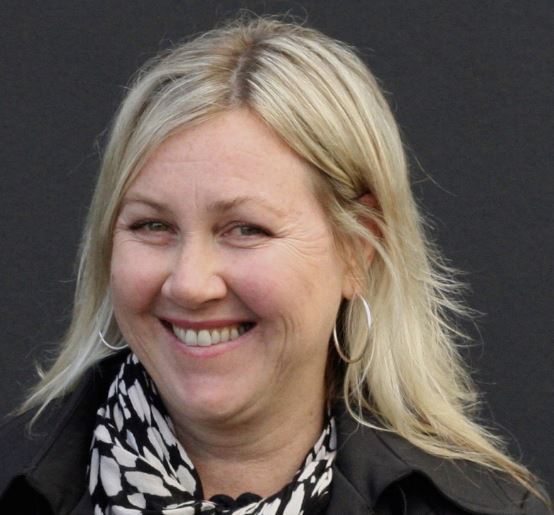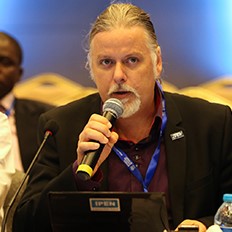Zero Waste OZ was created to address Australia’s unsustainable waste management systems and low recycling rates. With a strong technical background in the chemicals and waste nexus, and working towards a “Toxics Free Future” at a local, state and international level, these representatives bring expertise and valuable insights about our materials production processes and the ever- increasing generation of waste that is harming our environment, our health and our oceans especially for indigenous communities and other vulnerable communities in Australia.
While Australia faces a barrage of false technology solutions, such as waste to energy incinerators, landfills and plastic waste downcycling technologies, the role of Zero Waste OZ in helping the community to understand the impacts of these technologies and provide advice on sustainable and effective zero waste management options, is more important than ever.
Zero Waste OZ works to uphold the precautionary principle, toxics elimination, zero waste solutions and community right to know. Founding members include:

Jane Bremmer
Chair, Alliance for a Clean Environment
Jane Bremmer is based in Western Australia (WA) and has worked for environmental health and justice for more than 20 years. Currently the secretary and Zero Waste and Anti-incineration campaign coordinator for the National Toxics Network, Jane works collaboratively with the Global Alliance for Incinerator Alternatives (GAIA) in the Asia Pacific region and internationally with the more than 600 member organisations working for a zero waste and incinerator free future.
With a strong background in toxics disputes and environmental justice, grounded in her own personal experience living next to ‘WA’s worst toxic site’, Jane works to empower communities to defend their human rights to clean air, water and soil through the principles of ‘community right to know’ and access to independent science and expertise. As such, Jane through NTN, is also a member and works collaboratively with the International POPs Elimination Network (IPEN) representing more than 700 public interest ngos – working for a toxics free future at the highest level with the International Stockholm, Rotterdam and Basel conventions.
Jane coordinates a number of Western Australian local environmental health and justice groups working on air quality protection, toxics, waste management, pesticides and contaminated sites. The work of these groups resulted in the establishment of WA’s first ever Contaminated Sites Act. Jane has also served 10 years on the Australian National Industrial Chemicals Notification and Assessment Scheme (NICNAS) Community Engagement Forum, where major reforms were achieved to assess the large backlog of ‘existing chemicals’ in use in Australia that have not been assessed for human health or environmental impacts. The protection of children’s health especially is Jane’s key motivation and underpins all her work. She was awarded the Sunday Times Pride of Australia Medal for environmental activism 2007.
Email: info@zerowasteaustralia.org

Lee Bell is the Mercury and POPs Policy Advisor for the International Pollution Elimination Network (IPEN) and was Senior Researcher for National Toxics Network (Australia) until 2023. Lee has over twenty-five years of experience in research and analysis of industrial pollution, mercury contamination, hazardous waste, incineration, contaminated sites and persistent organic pollutants. He has authored a range of reports and articles on the trade and impact of mercury, POPs and plastic waste on the environment and human health. Mr Bell is a member of the Stockholm Convention BAT BEP and Dioxin Toolkit Expert Group and has just co-authored comprehensive guidance on BAT BEP for POPs contaminated sites management for the Stockholm Convention. Mr Bell, who is based in Australia, has also co-authored a range of publications on the contamination impacts of POPs in e-waste and treatment technologies to destroy them.
Recent publications
Petrlik, J., Bell, L., DiGangi, J., Allo’o, S. M. A. O., Kuepouo, G., Ochola, G. O., … & Weber, R. (2022). Monitoring dioxins and PCBs in eggs as sensitive indicators for environmental pollution and global contaminated sites and recommendations for reducing and controlling releases and exposure. Emerging Contaminants, 8, 254-279.
Adu-Kumi S, P. J., Akortia E, Skalský M, Pulkrabová J, Tomáško J, Bell L, Hogarh JN, Kalmykov D, Arkenbout A (2019). Short-Chain Chlorinated Paraffins (SCCPs) in Eggs from Six Countries. submitted abstract for Dioxin 2019 Conference.
Petrlik, J., S. Adu-Kumi, J. N. Hogarh, E. Akortia, G. Kuepouo, P. Behnisch, L. Bell and J. DiGangi (2019). Persistent Organic Pollutants (POPs) in Eggs: Report from Africa. Accra – Yaounde – Gothenburg – Prague, IPEN, Arnika – Toxics and Waste Programme, CREPD – Centre de Recherche et d‘Education pour le Développement:48.
Petrlik, J., D. Kalmykov, L. Bell and R. Weber (2017). “Brominated flame retardants in eggs – data from Kazakhstan and Thailand.” Organohalog Compd 79(2017): 167-170.
Weber R, Bell L, Watson A, Petrlik J, Paun MC, Vijgen J (2019) Assessment of POPs contaminated sites and the need for stringent soil standards for food safety for the protection of human health. Environ Pollut. 2019 Jun;249:703-715. doi: 10.1016/j.envpol.2019.03.066. Epub 2019 Mar 20.
